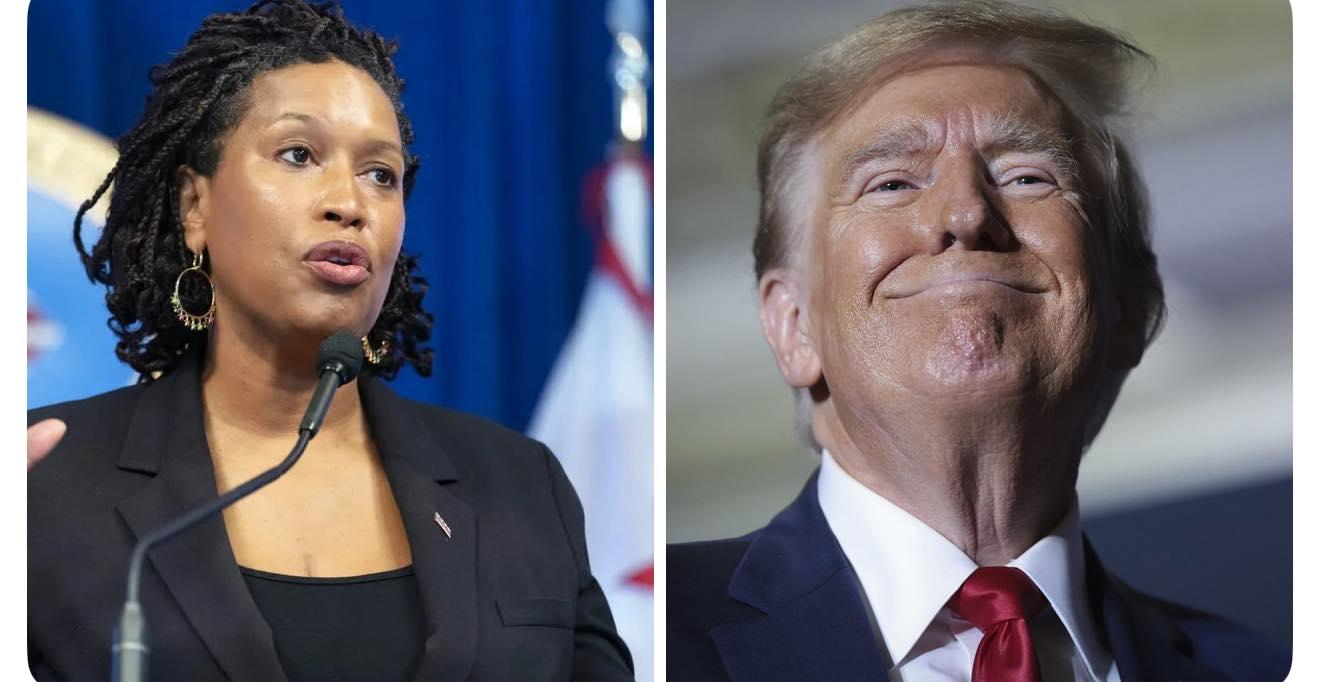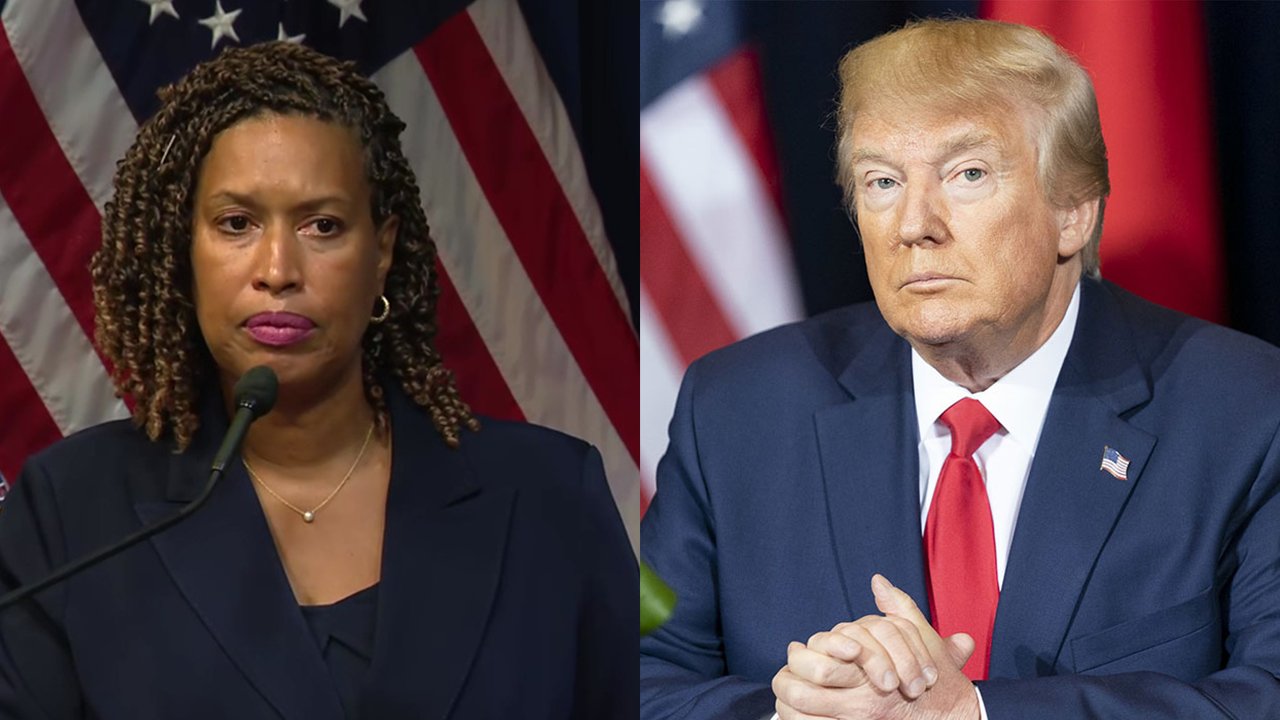D.C. Mayor’s Executive Order Mandates Indefinite Police Coordination with Federal Law Enforcement
Washington, D.C. – September 3, 2025 – In a bold move that has sparked both support and controversy, Washington, D.C. Mayor Muriel Bowser issued an executive order on Tuesday, directing the Metropolitan Police Department (MPD) to coordinate indefinitely with federal law enforcement agencies. The order, Mayor’s Order 2025-090, ensures continued collaboration “to the maximum extent allowable by law within the District,” with no specified end date. This decision comes as President Donald Trump’s 30-day federalization of D.C.’s police force, enacted under the District of Columbia Home Rule Act, nears its expiration on September 10, 2025.

A Response to Federal Intervention
The executive order follows President Trump’s August 11 declaration of a “crime emergency” in the nation’s capital, which placed the MPD under federal control and deployed 800 National Guard troops alongside 500 federal agents to combat what Trump described as rampant crime. Citing section 740 of the Home Rule Act, Trump justified the takeover as necessary to address “special conditions of an emergency nature” threatening federal workers, tourists, and the functioning of the government. However, recent data indicates violent crime in D.C. has been declining, with 2024 seeing a 30-year low and a 26% drop in 2025 compared to the previous year.
Bowser’s order extends the work of the Safe and Beautiful Emergency Operations Center (SBEOC), established to manage the District’s response to Trump’s Safe and Beautiful Task Force, created in March 2025. The SBEOC will “coordinate centralized communications” and ensure federal partners adhere to policing practices that maintain community trust, such as requiring officers to wear identifiable uniforms and provide identification during arrests. In a post on X, Bowser described the order as “the pathway forward beyond the Presidential emergency,” signaling her intent to maintain cooperation even after Trump’s temporary authority expires.
A Controversial Partnership
The decision has drawn mixed reactions. Bowser, a Democrat, has faced criticism from local leaders and residents who view the indefinite coordination as a concession to federal overreach. D.C. Councilmember Zachary Parker emphasized the importance of community-guided decisions, stating on X, “Most Washingtonians want decisions guided by our community values, not federal overreach.” Critics argue that the federal surge, including the presence of masked Immigration and Customs Enforcement (ICE) agents and National Guard troops from other states, has eroded trust between police and residents, particularly in immigrant communities.
Bowser herself has expressed mixed sentiments. While acknowledging the surge’s impact—a reported 87% drop in carjackings and a 15% overall crime reduction in the 20 days following the federal takeover—she has also criticized the deployment of masked ICE agents and out-of-state National Guard members as inefficient and trust-breaking. Her order appears to balance cooperation with a push for local control, as she has consistently advocated for D.C.’s autonomy and statehood to prevent such federal interventions.
Legal and Political Context
Trump’s federalization of the MPD, enacted under the Home Rule Act of 1973, allows the president to direct the mayor to provide police services for federal purposes for up to 30 days, extendable only by a joint congressional resolution. Legal challenges have already emerged, with D.C. Attorney General Brian Schwalb filing a lawsuit on August 15 against an order by Attorney General Pam Bondi that named DEA head Terry Cole as “emergency police commissioner,” a move deemed unlawful by local officials. A federal judge, Ana Reyes, ruled that the Home Rule Act does not grant the president authority to fully control the MPD, leading to a revised order that restored Chief Pamela Smith’s command while maintaining federal oversight.
Bowser’s order sidesteps a potential standoff as Trump’s 30-day authority nears its end, ensuring continued collaboration without requiring another emergency declaration. However, Trump has suggested he could declare a national emergency to extend control unilaterally, a claim legal experts like Claire Finkelstein of the University of Pennsylvania dismiss, noting the Home Rule Act’s clear 30-day limit.
Implications for D.C. and Beyond
The indefinite coordination raises questions about the balance between local autonomy and federal influence in D.C., a city with a unique status as a federal district without full statehood. While Bowser’s order aligns with Trump’s stated goal of making D.C. “the safest city in the country,” it has fueled tensions with Democrats who view the federal surge as a political maneuver rather than a response to actual crime rates. House Democrats, including Rep. Jamie Raskin, have introduced a resolution to terminate the federalization, though it faces challenges in a Republican-controlled Congress.
The broader context includes Trump’s plans to extend similar crackdowns to cities like Chicago and Baltimore, prompting resistance from local leaders. A recent court ruling found Trump’s deployment of National Guard troops to Los Angeles violated the Posse Comitatus Act of 1878, which limits military involvement in domestic law enforcement. This precedent could complicate future federal interventions.
Looking Forward
Bowser’s executive order reflects a pragmatic approach to navigating federal authority while addressing local concerns. By institutionalizing coordination, she aims to maintain the benefits of reduced crime while advocating for practices that preserve community trust. However, the lack of an expiration date has sparked fears of prolonged federal influence, particularly among residents who feel the surge has not reached neighborhoods hardest hit by crime.
As D.C. grapples with its dual identity as a city and federal enclave, the order underscores the delicate balance between cooperation and autonomy. With crime rates already declining, the success of this partnership will depend on whether it can address community needs without compromising D.C.’s self-governance. For now, Bowser’s decision marks a significant chapter in the ongoing debate over who controls the nation’s capital.
(Word count: 800)








